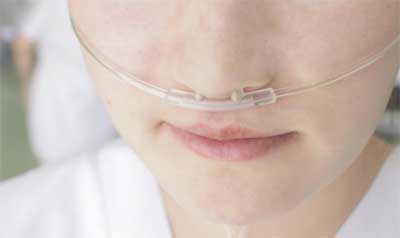- Home
- Editorial
- News
- Practice Guidelines
- Anesthesiology Guidelines
- Cancer Guidelines
- Cardiac Sciences Guidelines
- Critical Care Guidelines
- Dentistry Guidelines
- Dermatology Guidelines
- Diabetes and Endo Guidelines
- Diagnostics Guidelines
- ENT Guidelines
- Featured Practice Guidelines
- Gastroenterology Guidelines
- Geriatrics Guidelines
- Medicine Guidelines
- Nephrology Guidelines
- Neurosciences Guidelines
- Obs and Gynae Guidelines
- Ophthalmology Guidelines
- Orthopaedics Guidelines
- Paediatrics Guidelines
- Psychiatry Guidelines
- Pulmonology Guidelines
- Radiology Guidelines
- Surgery Guidelines
- Urology Guidelines
Liberal oxygen use in critically ill patients increases death risk : Lancet

Usually in a critical care setting supplemental oxygen use is liberally carried out as a practice to acutely ill adults although the credibility of this practice is unclear.Dr. Derek K Chu at Department of Medicine, McMaster University, Hamilton, Canada, and colleagues conducted a systematic review and meta-analysis to evaluate efficacy and safety of liberal versus conservative oxygen therapy in acutely ill adults.The researchers of McMaster University after extensive data analyses in a study have found that supplemental oxygen, when given liberally and unsparingly to acutely ill patients, increases the risk of death without improving other health outcomes.
The researchers searched electronic academic databases from the Cochrane Central Register of Controlled Trials, MEDLINE, Embase, HealthSTAR, LILACS, PapersFirst, and the WHO International Clinical Trials Registry from inception to Oct 25, 2017, for randomised controlled trials comparing liberal versus conservative oxygen therapy and death rates, as well as impacts on such aspects as disability, infections and hospital length of stay.
The investigators shortlisted 25 randomized controlled trials encompassing more than 16,000 adult patients with sepsis, stroke, trauma, emergency surgery, heart attack or cardiac arrest for the study.The analysis of data demonstrated that, as compared to the conservative strategy, liberal administration of oxygen resulted in increased in-hospital death by 21 percent. Further analyses suggested that the more supplemental oxygen patients were given, the higher their risk was for death. However, the incidence of other conditions, such as infections or length of hospital stay, were similar between the two groups.
The researchers concluded that in acutely ill adults, high-quality evidence shows that liberal oxygen therapy increases mortality without improving other patient-important outcomes. Supplemental oxygen might become unfavorable above an SpO2 range of 94–96%. These results support the conservative administration of oxygen therapy.
“Supplemental oxygen is administered to millions of acutely unwell patients around the world every day,” said Waleed Alhazzani, senior author of the paper, assistant professor of medicine at McMaster and an intensive care and general internal medicine staff member at St. Joseph’s Healthcare Hamilton.
“Despite this, there is a striking lack of definitive, high-quality evidence related to this common intervention.”The researchers estimated one additional death for every 71 patients treated with a liberal oxygen strategy.
The results of the study have immediate and important implications for health-care providers, policymakers and researchers more so when there are no definitive guidelines on oxygen therapy for acute illnesses.The study provides high-quality evidence, that administering too much supplemental oxygen increases mortality among acutely sick patients. and little change in prevalent practice in the light of findings may save many lives.
For further reference log on to :
DOI: https://doi.org/10.1016/S0140-6736(18)30479-3

Disclaimer: This site is primarily intended for healthcare professionals. Any content/information on this website does not replace the advice of medical and/or health professionals and should not be construed as medical/diagnostic advice/endorsement or prescription. Use of this site is subject to our terms of use, privacy policy, advertisement policy. © 2020 Minerva Medical Treatment Pvt Ltd